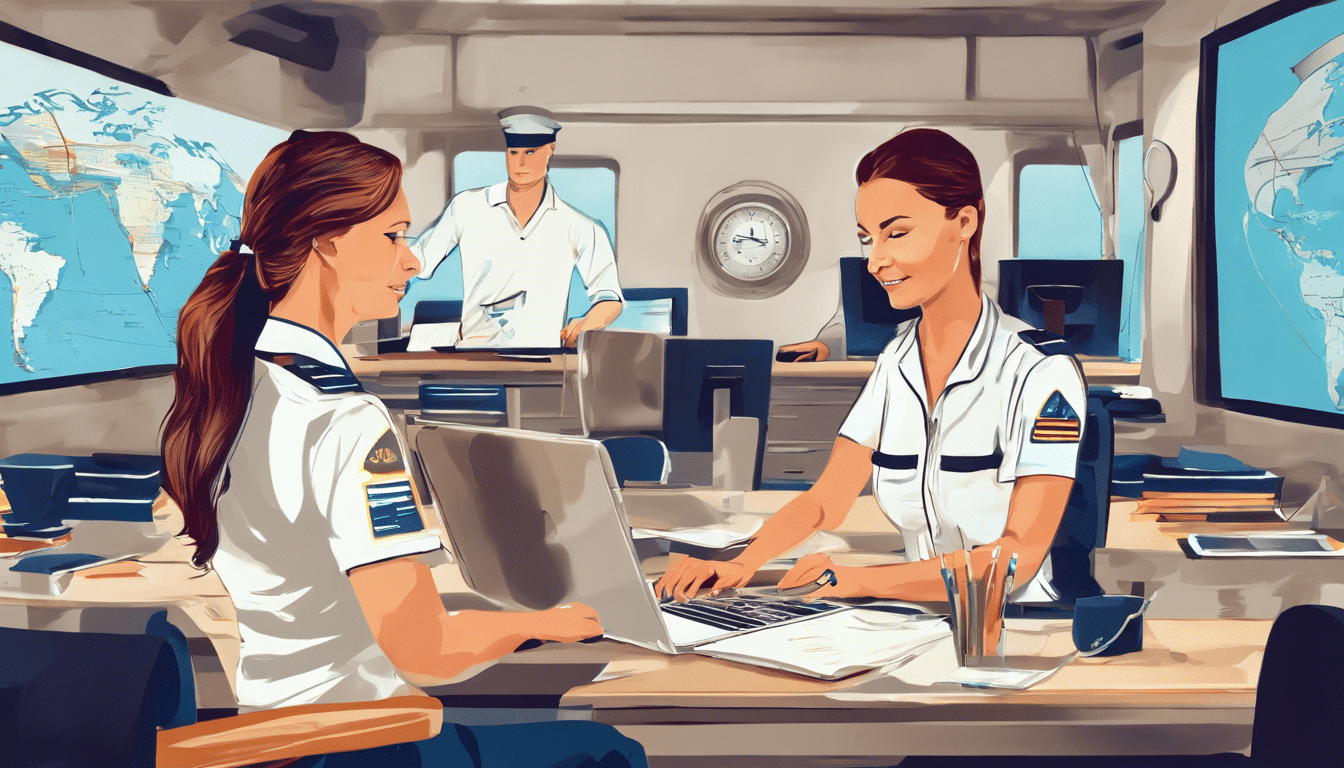In an ever-evolving maritime industry, the need for skilled professionals is at an all-time high. Traditional education methods often struggle to accommodate the demanding schedules of individuals pursuing careers at sea. Self-paced maritime training has emerged as a viable solution that combines flexibility and quality, catering to the diverse needs of aspiring maritime professionals. This article delves into the benefits of self-paced maritime education, emphasizing how it fosters personal growth while ensuring that training programs meet rigorous educational standards. Ultimately, we will explore the significant impact of such training on career advancement in the maritime sector, demonstrating that with the right approach, individuals can enhance their expertise without compromising their professional commitments.
Key Takeaways
- Self-paced maritime training offers unmatched flexibility for learners.
- Flexibility in education allows maritime professionals to balance work and study effectively.
- Quality assurance in training programs is crucial for maintaining industry standards.
- Self-paced learning enhances retention and comprehension in complex maritime subjects.
- Career advancement in the maritime industry is significantly impacted by continuous learning opportunities.
Introduction to Self-Paced Maritime Training
The advent of technology has revolutionized various industries, and maritime training is no exception. Self-paced maritime training has emerged as a flexible and effective educational alternative for aspiring seafarers and maritime professionals. This innovative approach allows learners to engage with instructional content at their own convenience, accommodating their personal schedules and learning speeds. As maritime regulations become increasingly stringent, the demand for qualified personnel is on the rise, making self-paced training an appealing solution for many. Additionally, these programs often incorporate interactive online platforms, simulation exercises, and comprehensive assessments that provide a well-rounded educational experience. This article delves into the various aspects of self-paced maritime training, including its benefits, key features, and the impact it has on the maritime industry.
Benefits of Flexibility in Maritime Education
The benefits of flexibility in maritime education are manifold, catering to the diverse learning needs of students and professionals in the maritime field. One significant advantage is the ability to tailor learning schedules around the varying commitments of maritime practitioners, such as sea duty and port operations. This flexibility enhances accessibility, allowing individuals to pursue their studies without sacrificing their professional responsibilities. Furthermore, a flexible maritime education framework can incorporate a blend of online and on-campus courses, catering to different learning styles and preferences. Such an approach not only facilitates a broader reach to aspiring maritime professionals from various geographical locations but also fosters a more inclusive learning environment. Additionally, integrating flexible learning options encourages continuous professional development among current maritime workforce members, ensuring that they stay abreast of industry advancements and regulatory requirements. Overall, the adaptability of maritime education significantly contributes to the development of a skilled and knowledgeable workforce, which is essential for the ongoing evolution of the global maritime industry.
‘The future belongs to those who prepare for it today.’ – Malcolm X
Ensuring Quality in Maritime Training Programs
In today’s rapidly evolving maritime industry, self-paced maritime training programs are gaining prominence as a viable solution that combines flexibility with quality, ultimately supporting individuals in their career advancement. The ability to learn at one’s own pace provides unique benefits, particularly for professionals whose work schedules may not align easily with traditional training formats. These courses often incorporate a variety of interactive learning resources, such as video tutorials, quizzes, and practical simulations, ensuring that learners not only absorb critical knowledge but also develop essential skills applicable in real-world maritime contexts. Moreover, maintaining high-quality standards in these self-paced training programs is crucial; they must be regularly updated to reflect current industry regulations and technological advancements. By prioritizing both the flexibility of self-paced learning and the rigorous quality assurance processes, training providers can better equip maritime professionals with the competencies needed to excel in their careers, thereby fostering a more skilled workforce in the maritime sector.
Impact on Career Advancement in the Maritime Industry
In the ever-evolving maritime industry, professionals are increasingly turning to self-paced maritime training as a viable solution for career advancement. This method of learning offers both flexibility and quality, enabling individuals to enhance their skills and knowledge at their own pace without the constraints of traditional classroom settings. With the maritime sector demanding a wide array of competencies—from navigation and safety protocols to environmental regulations—self-paced training programs provide tailored options that fit into busy work schedules, allowing learners to balance their professional obligations with personal development. Moreover, the quality of these training programs has significantly improved, with many institutions adopting advanced technologies and interactive modules to deliver comprehensive educational experiences. As a result, maritime professionals who engage in self-paced maritime training not only augment their qualifications but also position themselves competitively for promotions and new opportunities within the industry, ultimately impacting their long-term career trajectories.
Virtual Maritime Academy is a leading provider of online maritime education and training, offering a wide range of courses designed to meet the needs of the global maritime industry. With a commitment to quality and innovation, Virtual Maritime Academy is dedicated to preparing seafarers and maritime professionals for success in their careers. Now a DNV Certified Maritime Training Provider, the academy upholds the highest standards of excellence in training and education.






